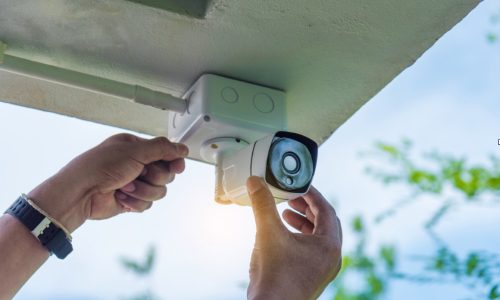If a prominent business is looking for an integrator to work with, they’ll want to hire an expert. Some think a business owner might overlook the technology integrator that does resimercial installations, and instead choose a firm that specializes in commercial integration. Similarly, someone building a five-million-dollar house may be looking specifically for a residential installer.
While in some cases that may be true, AV integrators who work in both commercial and residential spaces have unique strengths that make them just as, if not more, valuable than specialized firms.
If you’re a technology integrator, you may feel pressure to choose between commercial or residential work. Here’s how you can leverage your experience in both to show clients your capabilities. At Texadia Systems, we work in both the commercial and residential fields in the Dallas, Texas area, so I’ll share some of what we’ve learned over the years. If you’re looking for even more info, feel free to subscribe to our monthly newsletter.
Commercial-Grade Technology, Residential Quality Comfort
In many ways, a home functions like a business. A residential home has a budget, busy days, things that need to be done, and assets that need protection just like a company does, meaning a home should be treated with the same respect as a commercial project.
And in a commercial installation, you want to consider the quality of life that is so instinctual to residential spaces. Whether you’re working for a corporate or healthcare client, you still need to pay attention to how certain rooms will make visitors feel. Lobbies, waiting areas, meeting rooms, dining spaces—people are still living their lives here, even if it’s a commercial building.
It’s our job to put the pieces together and make a system work flawlessly. Residential and commercial skills complement each other, and if you’re an AV integrator, let clients know you’re a professional in both areas. You’d be surprised how many CEOs and COOs are looking for an integrator for both their business and their home. Why not be their go-to for both?
The Most Important Component: A Strong Network
The Internet of Things has dramatically changed the dynamic of the integration market, both residential and commercial. Assigning an IP address to a device, whether it’s a security camera or digital signage, requires a network infrastructure company, which all AV integrators must be today.
Here in Texas, countless new high-rise buildings are going up, and they’ll all need infrastructure throughout the building and individual units. With experience on both the residential and commercial sides, you’ll be more successful in this kind of job.
Offer Personalized Assistance and Support
Technology, no matter how skillfully it’s installed, will always run into issues from time to time. One of our strengths at Texadia Systems is our ability to provide consistent support to our clients. We have staff answering phones all day, fielding issues, and remotely managing systems. We provide all levels of tech support for both the commercial world and residential.
Service is a crucial element for anyone deciding to make a tech investment. Will someone be there to answer the phone if they have an issue? If you’re an AV integrator, make sure your clients know your support model, and demonstrate your commitment to creating long-term relationships.
Dawna Payne is the executive vice president of Texadia Systems.
Texadia Systems is an AV consultant based in the Dallas/Ft. Worth area and members of USAV. Contact us here for any commercial or residential technology questions you may have.







